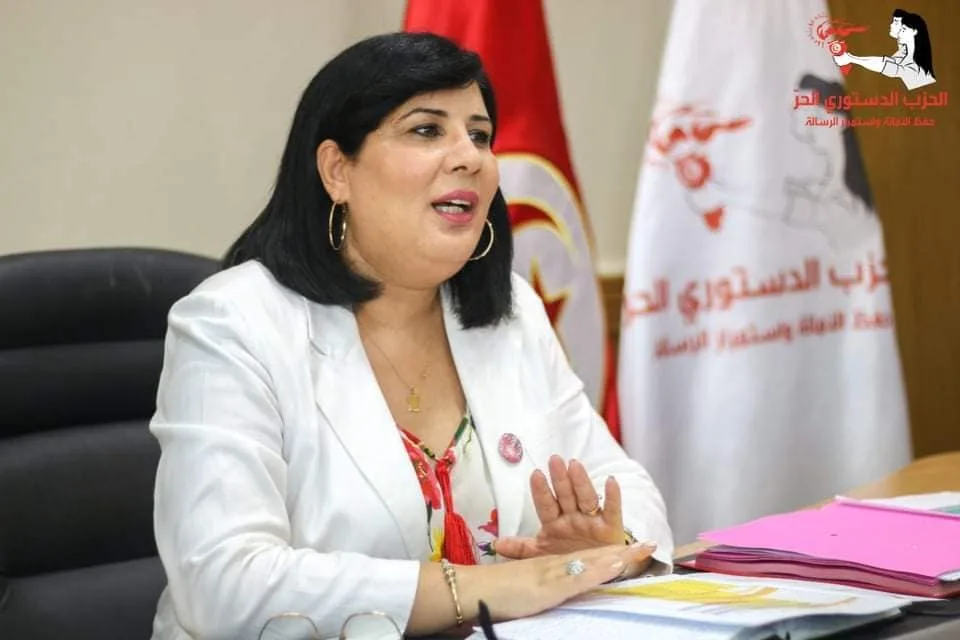Tunis, June 13, 2025 – The Criminal Chamber of the Tunis Court of First Instance issued a two-year prison sentence on Thursday against Abir Moussi, leader of the Free Constitutional Party, as part of the case filed against her by the Independent High Election Commission.
Case Background: A Political Conflict Turns into a Judicial Process
The case stems from a complaint filed by the Independent High Election Commission against Moussi, based on media statements and political stances in which she criticized the Commission’s work during the electoral preparations, particularly with regard to the 2022 legislative elections.
This trial is part of a series of cases Moussi has faced over the years, including several prosecutions in which her defense team repeatedly complained about the lack of transparency, the overlap of political dimensions in the trials, and the use of public bodies to prosecute opposition voices.
Multiple Prosecutions in a Closed Political Climate
The Freedom for Tunisia Observatory believes that the prison sentence issued against Abir Moussi in a case related to criticism of a public body constitutes a serious violation of the freedom of political expression, especially when it concerns criticism of institutions that are supposed to be publicly accountable.
The Observatory notes that this trial comes within a broader political context characterized by intensified prosecutions against political opponents of various orientations. This reflects a systematic process of closing down and neutralizing the political sphere and criminalizing criticism, whether through Decree 54 or through the application of criminal charges based on complaints from official bodies.
The Freedom for Tunisia Observatory calls for:
- Repealing provisions criminalizing legitimate critical speech against public institutions;
- Ensuring a fair trial for all political opponents, free from selective judicial interference;
- Ending the use of public bodies, including the Independent High Election Commission, as parties to the prosecution of political opponents;
- Protecting freedom of expression and political opinion as a constitutional right and a pillar of the democratic system.
The Observatory asserts that the continued persecution of opponents based on complaints filed by state institutions threatens the democratic process and pushes the country toward a state of total political isolation.





